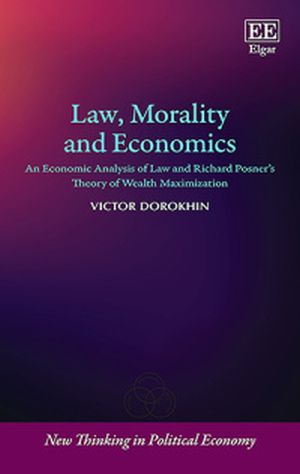
This book reconceptualizes wealth maximization in law and economics, proposing a revised framework that integrates cognitive and moral dimensions into institutional analysis. Victor Dorokhin argues that wealth maximization must be constrained by the moral intuitions and normative expectations inherent in human cognition.
The author expands upon the concept of moral costs, highlighting the often-overlooked ethical trade-offs in standard economic models. He assesses the foundations of legal reasoning from an interdisciplinary perspective, outlining a cognitively grounded alternative to utilitarian and contractarian frameworks in legal analysis. Drawing on insights from the Austrian school, legal philosophy, neuroscience, and a critical engagement with Richard Posner’s theory of wealth maximization, the chapters explore how institutions emerge not merely through rational design, but as responses to shared judgments about justice and legitimacy. The book also presents practical recommendations for legal policy, emphasizing the importance of aligning legal frameworks with the moral architecture of social agents.
Law, Morality and Economics is a valuable resource for scholars and students of legal economics and political economy. Providing normative guidelines and actionable policy suggestions, it is also beneficial for legal policy analysts and reformers.